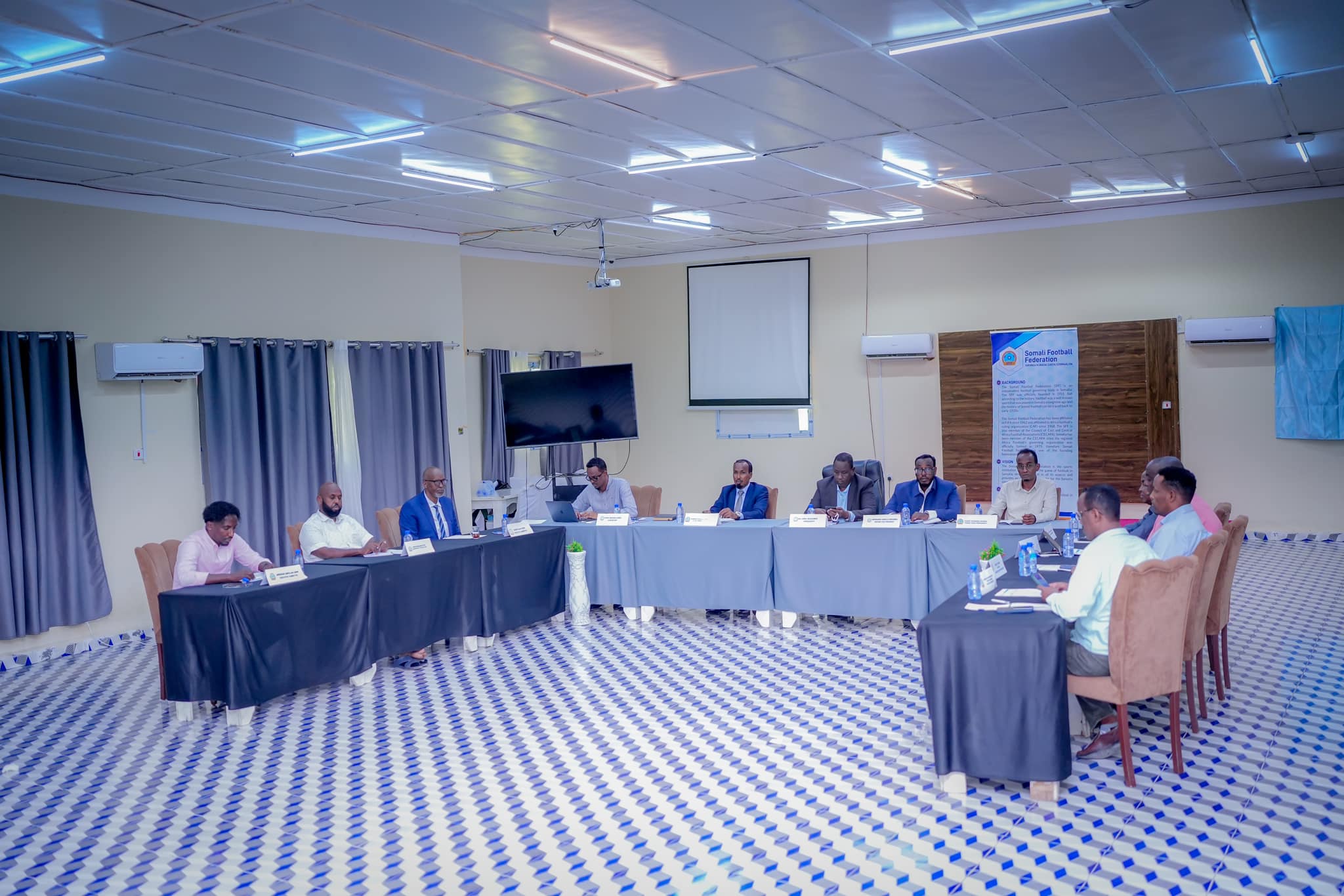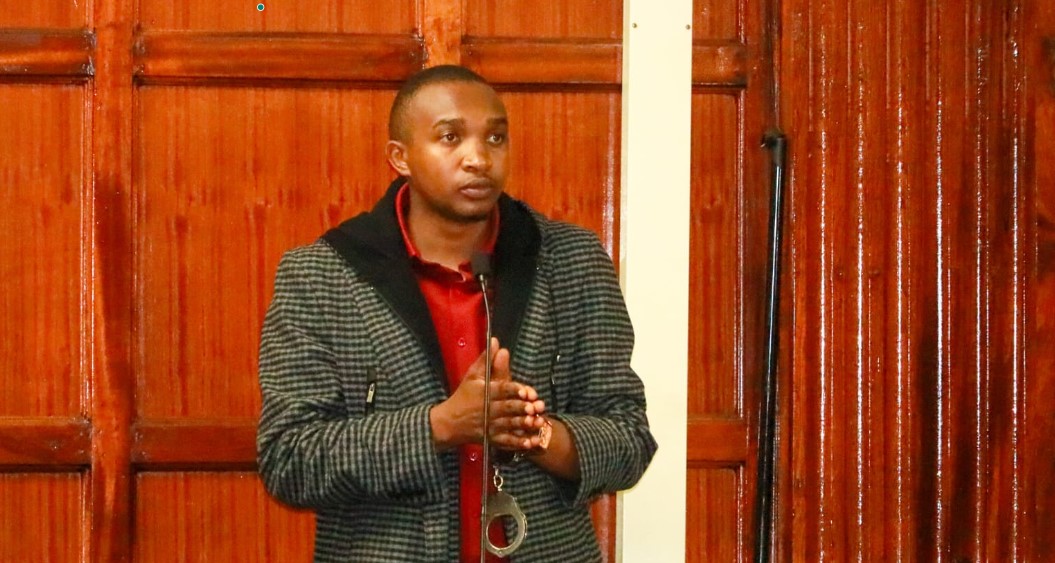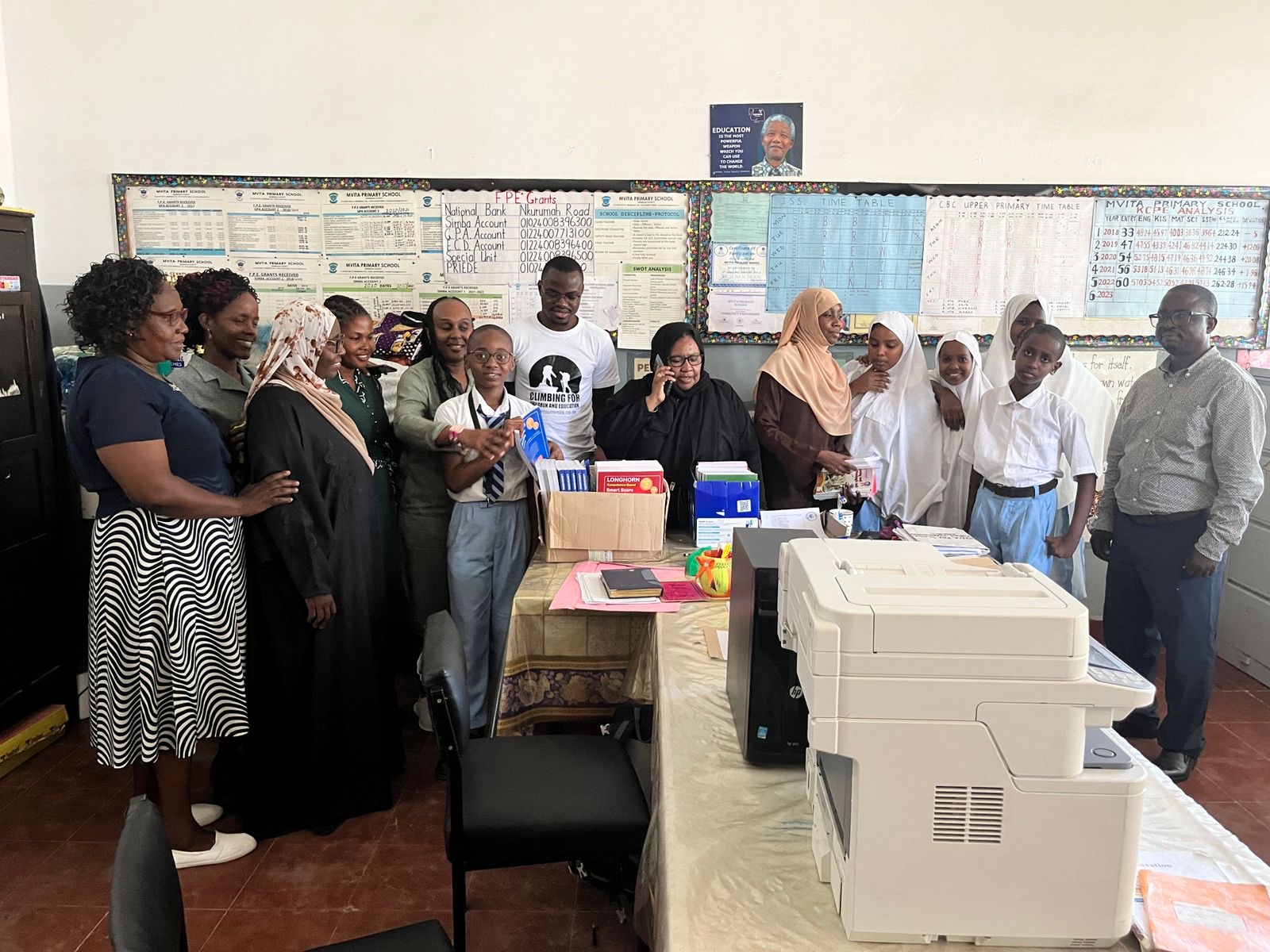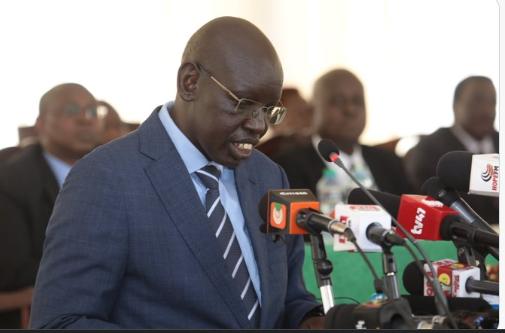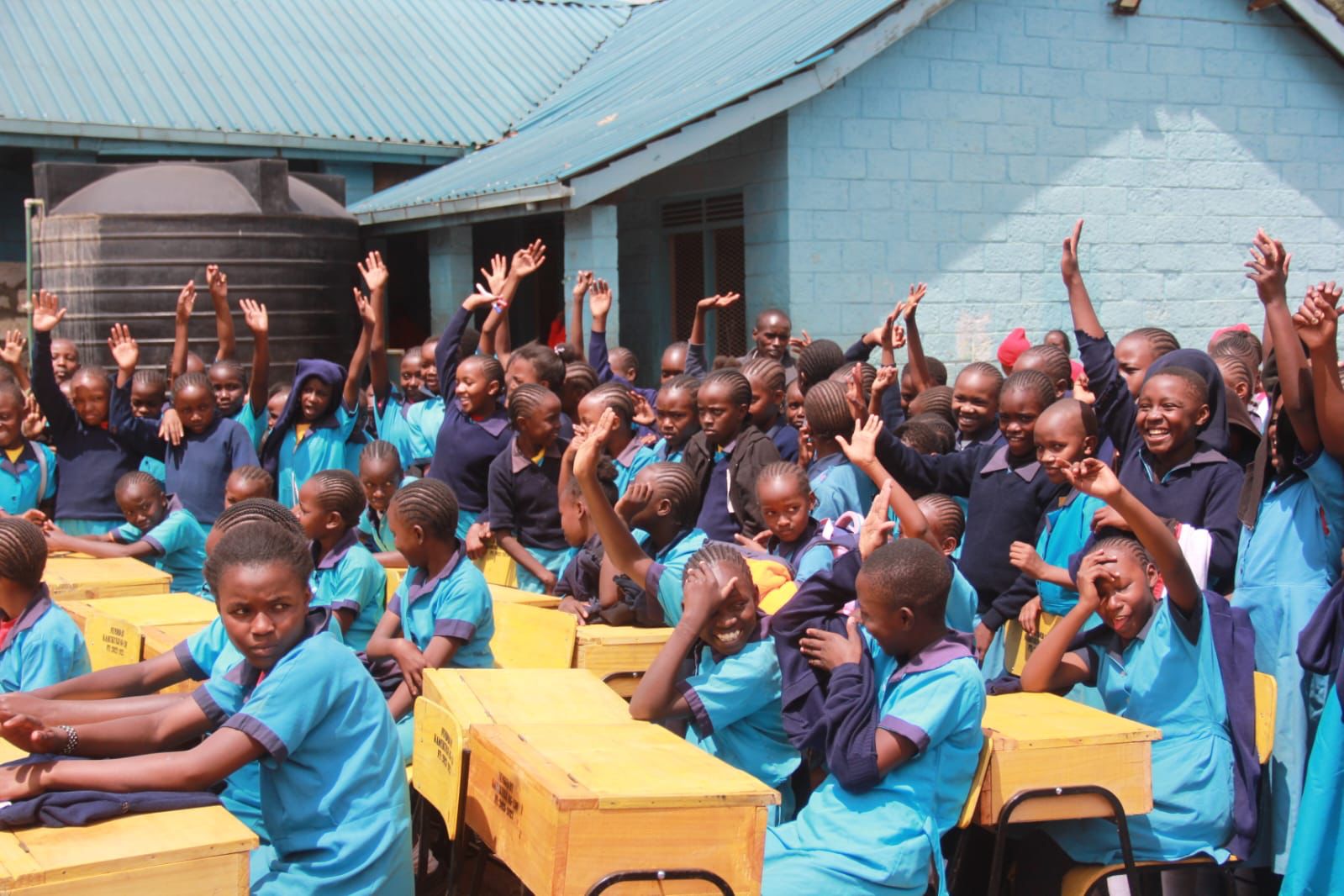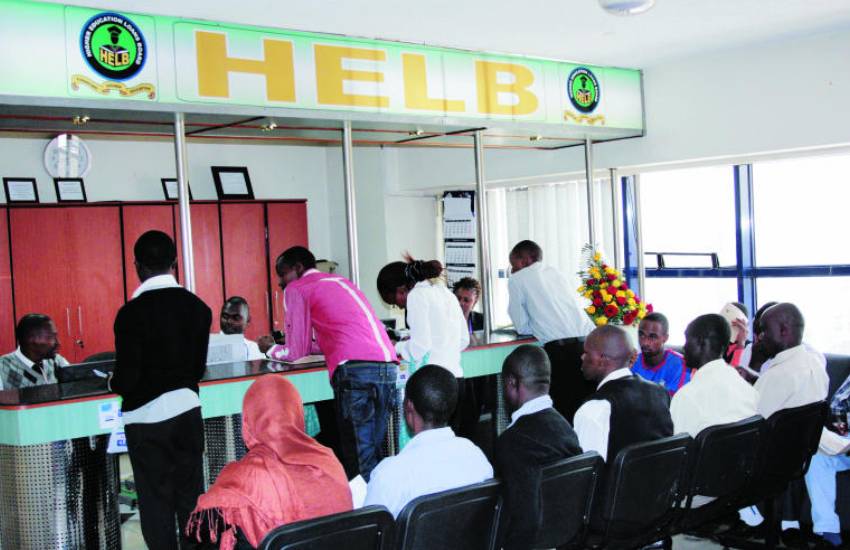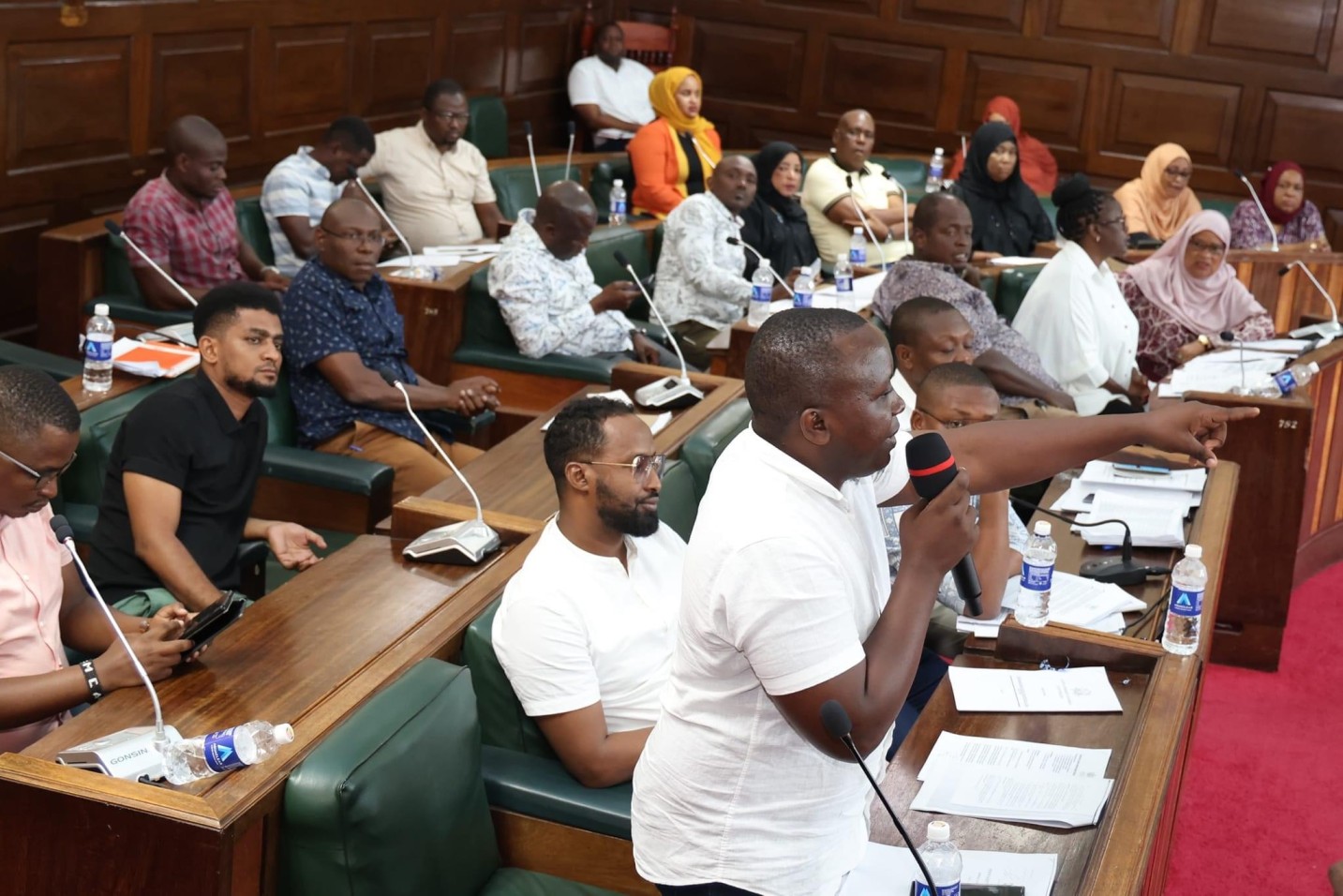Kumbusha Mwanafunzi initiative helping improve education in Coast schools
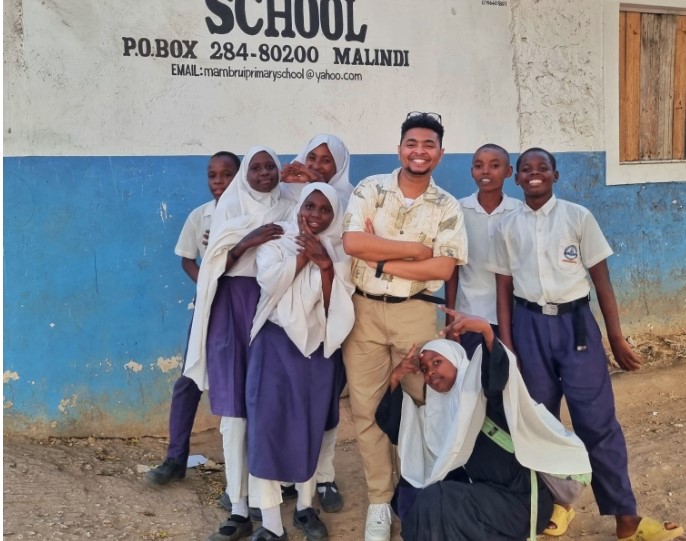
By Farhiya Hussein |
Sabri hopes to introduce teacher training programmes to ensure educators are equipped with the skills to support student empowerment.
When Sabri Farouk began visiting schools across Mombasa with his Kumbusha Mwanafunzi initiative, he aimed to inspire students to take control of their academic journey.
Through motivational talks, he has encouraged students to set ambitious goals, discover their talents, and overcome the challenges that hinder their education.
Keep reading
The initiative, which focuses on transforming academic performance, is already making a noticeable impact in local schools and communities by fostering a culture of learning and engagement.
Sabri, an educationist and teacher, is leading a grassroots movement aimed at transforming the academic landscape in Mombasa through his Kumbusha Mwanafunzi initiative.
“The initiative directly addresses long-standing challenges in the local education system, such as limited resources and economic barriers that have held back many students,” he said.
At the core of the Kumbusha Mwanafunzi initiative is the belief that every student can succeed if given the right encouragement and tools. Farouk’s motivational talks aim to ignite a sense of purpose and ambition among students.
“Our goal is to help learners take control of their education and realise that they have the potential to achieve great things, no matter their circumstances,” Sabri told The Eastleigh Voice.
According to him, the initiative has already reached schools such as Light Academy, Abrar High School, and Young Muslim Schools, where students have reported significant changes in their attitudes towards education.
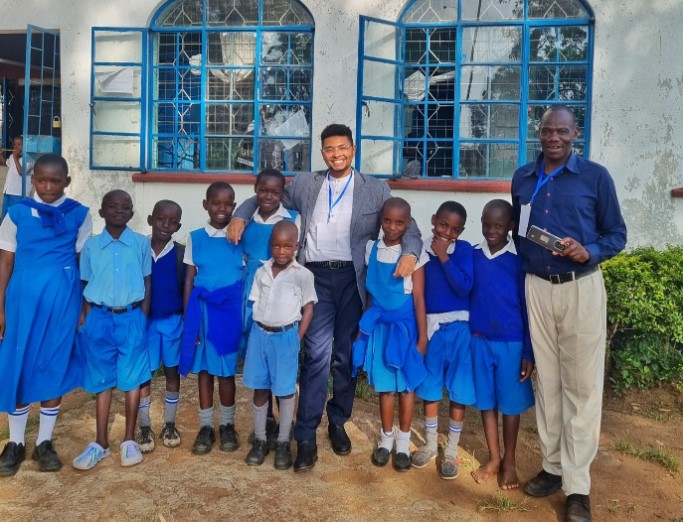 Sabri Farouq with pupils and a teacher at Assar Johansson Primary School in Migori County. (Photo: Handout)
Sabri Farouq with pupils and a teacher at Assar Johansson Primary School in Migori County. (Photo: Handout)
Role models and mentors
Sabri said several students have set clear academic and career goals following the sessions.
"In some cases, students have gone on to pursue careers in education themselves, becoming role models and mentors for others," he added.
The impact extends beyond the classroom, with parents actively supporting the programme. The Muslim Parents Association recently invited Sabri to Moi Girls School Nairobi for a motivational session aimed at Muslim students, a testament to the growing recognition of the initiative’s value.
“The reception from parents has been overwhelmingly positive. They see the difference in their children and want to be part of this change,” said Sabri.
Despite the initiative’s success, the obstacles facing students in Mombasa are significant.
Limited resources, economic hardships, and parental disengagement are common barriers to quality education.
"Many schools struggle with a lack of basic supplies and trained teachers. In some cases, students are forced to drop out because their families can't afford to keep them in school, or they are drawn into work to support their households."
He mentioned drug abuse to be another critical issue affecting many students, often leading them astray from their educational paths. Additionally, some parents, overwhelmed by their struggles, are unable or unwilling to engage with their children’s academic progress.
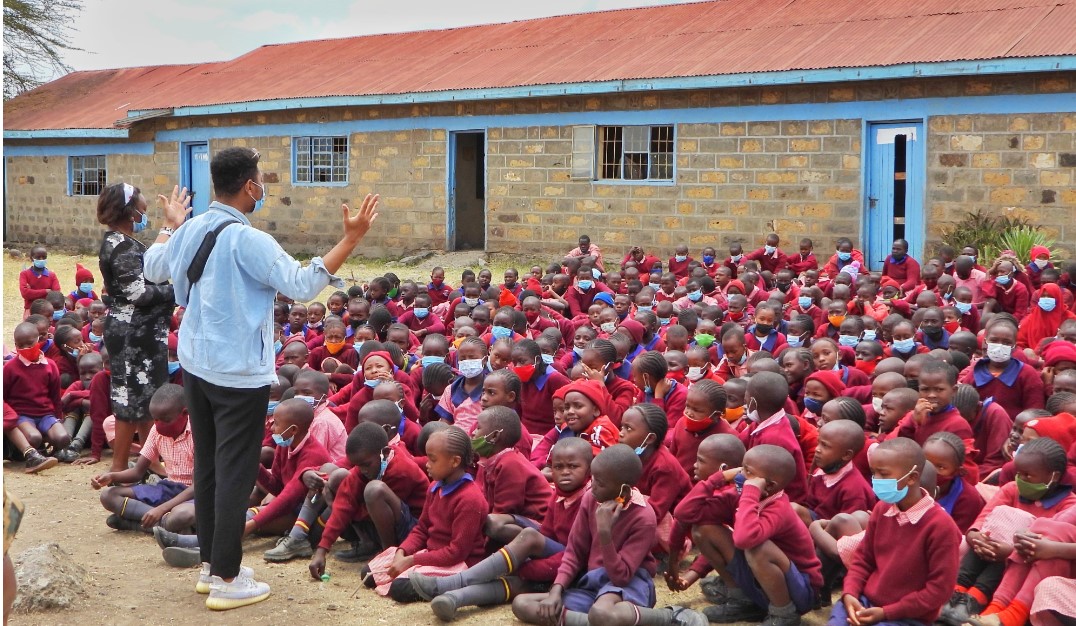 Sabri Farouq speaks to pupils during one of his school mentorship visits. (Photo: Handout)
Sabri Farouq speaks to pupils during one of his school mentorship visits. (Photo: Handout)
“Kumbusha Mwanafunzi addresses these challenges by offering practical solutions through its empowerment talks. My sessions focus on improving students’ time management, study techniques, and goal-setting skills, equipping them to overcome personal and academic difficulties. We also collaborate with local organisations to provide mentorship and tutoring, filling the resource gaps where schools cannot," he said.
The initiative, Sabri noted, also taps into students' talents, engaging them in activities such as poetry, drama, and music to keep them motivated and connected to their education.
“By nurturing creativity and innovation, Kumbusha Mwanafunzi offers an alternative to the risky behaviours many students face.”
One of the main concerns for the Kumbusha Mwanafunzi initiative is ensuring the long-term impact of its efforts. Sabri has implemented several strategies to sustain student engagement after the motivational sessions. He conducts regular follow-ups with schools, working closely with guidance and counselling departments to track students’ progress.
"Follow-ups are essential. It is not enough to give one talk and leave. We stay in touch with the schools to ensure that the students continue to apply what they’ve learned,” he stated.
Use of social media
The initiative also uses social media platforms to keep students engaged, offering online resources and forums where they can continue their development.
By involving parents, teachers, and the broader community, the initiative aims to create a supportive network around each student.
"We want parents to reinforce these messages at home, and we want teachers to carry them into the classroom. Education is a collective effort," Sabri said.
The Kumbusha Mwanafunzi initiative is committed to ensuring that students from marginalised or disadvantaged backgrounds benefit equally from its services.
"We don’t exclude anyone. Our talks are designed to be inclusive and accessible to all students, regardless of their socio-economic status,” he said.
To extend its reach, the initiative partners with organisations such as Saliheen Foundation and Pearls of Hope, which work with vulnerable communities. These partnerships allow the initiative to provide additional support, such as sponsorships and mentorships, to students who need it most.
The impact of Kumbusha Mwanafunzi on the local community is clear, but Sabri’s ambitions extend beyond Mombasa. He envisions expanding the initiative across Kenya, partnering with government agencies and educational institutions to reach more students.
"There is so much potential in our youth, and we need to tap into it on a national scale," he said.
Sabri also hopes to introduce teacher training programmes to ensure that educators are equipped with the skills to support student empowerment.
"Teachers are key to sustaining these changes in the long term. If we can empower them, they will pass on that empowerment to their students," he explained.
Reader comments
Follow Us and Stay Connected!
We'd love for you to join our community and stay updated with our latest stories and updates. Follow us on our social media channels and be part of the conversation!
Let's stay connected and keep the dialogue going!

